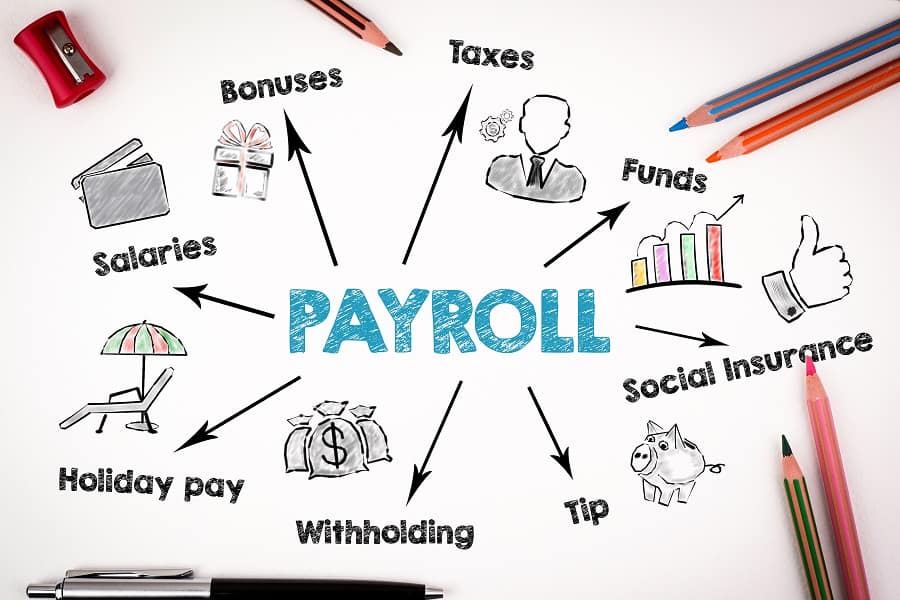What Are Payroll Expenses?
Written by: Natalie Fell
Natalie is a writer with experience in operations, HR, and training & development within the software, healthcare, and financial services sectors.
Reviewed by: Daniel Eisner
Daniel Eisner is a payroll specialist with over a decade of practical experience in senior accounting positions.
Updated on October 1, 2023

There’s no getting around it – running a business costs money. Payroll is sure to be one of your main expenses, which is why it represents a crucial accounting operation in every company.
Keeping track of all the elements of payroll and related expenses can be overwhelming, but keeping them organized is extremely important. This guide provides all the detail you’ll need to understand the most common payroll expenses and how to calculate them.
Types of Employer Payroll Expenses
There are several payroll expenses to account for. Let’s take a look at some of the most common expenses and why they’re important.
Benefits
If you provide a suite of benefits to your employees, expenses will likely be associated with each one of them. Depending on which benefits you offer, you and your employees may be responsible for contributions. Contributions made by employees are typically deducted from their paychecks.
For example, you could provide health insurance for which you cover some of the cost and employees pay the rest. Or you might offer a 401k plan with a company match. In this case, both you and your employees will be responsible for an equal contribution.
In addition to health insurance and retirement plans, you may also have expenses related to workers’ compensation insurance, childcare benefits, life insurance, or commuter benefits.
Withholding Taxes
Depending on your employees, you’ll be responsible for withholding the appropriate payroll tax amounts from their paychecks each pay period. When your employees first join your company, they’ll fill out a W4 form which will determine the correct amount to withhold from their wages.
The most common taxes to be withheld are federal income tax, state income tax, and FICA. FICA tax is withheld in one amount, then allocated to Social Security tax and medicare tax. Employers and employees are required to pay FICA tax.
Employer Payroll Taxes
As an employer, one of your main payroll expenses will be employer-specific payroll taxes. Though there may be variations depending on your state, here are the most common payroll taxes:
- FUTA (federal unemployment taxes)
- SUTA (state unemployment taxes)
- FICA (employer paid social security and medicare taxes)
Businesses should make sure to budget enough money to pay these taxes. Using the latest payroll software or a payroll service provider makes accounting for these expenses much easier.
Note that each independent contractor on your payroll is responsible for their own related tax payments. Also keep in mind that you may have payroll expenses related to using a payroll service provider, such as service charges or subscription fees.

Calculating Payroll Expenses
Now that you’re familiar with the main payroll expenses, let’s look at how to make the calculations.
- Ensure your employees have completed a W4 form. This allows you to withhold the correct tax amounts from their wages.
- Determine your payroll frequency and stay consistent. This ensures all of your related payroll expenses are properly accounted for.
- Make deductions based on employee gross pay. An employee’s net pay equals their wages minus any deductions.
- Record each line item to keep track of your payroll expenses. You will need these for tax accounting and auditing purposes.
Each of these payroll expense tasks can be cumbersome to handle manually, so consider investing in a payroll service provider or make sure your accounting and HR teams have the latest payroll accounting software.
Summary
When all of your payroll expenses are accounted for and paid, you can rest assured that your business is in compliance with tax laws and regulations. It also ensures that the correct deductions are being made from each of your employee paychecks.
Keeping track of payroll expenses can be tedious and time consuming, so it’s worth having a good system in place to stay organized.
